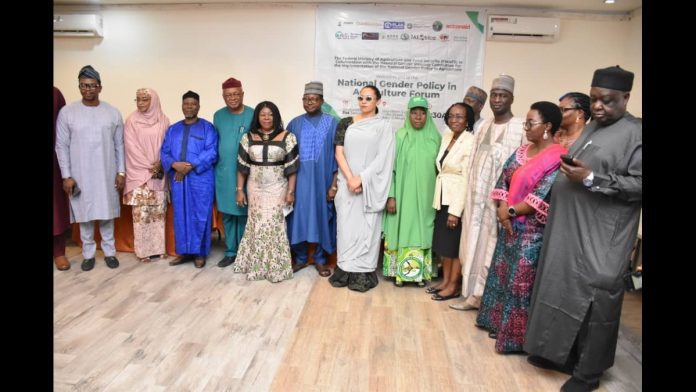News in Brief
– The federal government of Nigeria and agricultural stakeholders pledge to implement a gender policy to empower women farmers, bridge the gender gap, and boost food security, aligning with national development and social development goals.
-Interactive discussions and a resulting communique outline steps for collaborative action towards a more inclusive and productive agricultural sector.
The Nigerian government and key stakeholders in the agricultural sector have joined forces with the aim of advocating for the implementation of the National Gender Policy in Agriculture (NGPA).
The country’s agriculture minister, Abubakar Kyari, rallied this collaboration recently at the National Gender Policy in Agriculture Forum.
According to the ministry’s press release, the event was jointly organised by the Steering committee for the implementation of the NGPA and was held in the nationâs capital, Abuja.
Kyari, who was represented by the ministryâs Director of Human Resources Management, Mrs. Oluwatoyin Alade, highlighted the importance of collaboration for successful policy implementation.
The minister stressed the alignment of the policy with national agendas like diversification and women’s empowerment. He also noted its potential to contribute to economic growth, poverty reduction, and environmental sustainability.
Empowering women farmers, boosting productivity
Permanent Secretary, Temitope Fashedemi, used the opportunity to reiterate the ministry’s commitment to gender mainstreaming in agriculture. He emphasised the policy’s role in reducing women’s vulnerability and biases while acknowledging the significant population they represent. He added that the policy will enhance productivity and achieve gender-based reforms in the sector.
Representatives from various organisations participated in the event including the House Committee on Agricultural Production and Services; the Senate Committee on Local Content; and NGOs like ActionAid and Plan International. There were interactive sessions and discussions aimed to garner collective support for the policy’s implementation.
The intentional push for empowering women farmers and encouraging more women to participate in agriculture aligns with what several industry experts have said about its pontential to improve food production. In a public address in 2023, Edobong Akpabio, the former Chairperson of the Lagos Chamber of Commerce and Industry (LCCI), Agriculture and Allied Group, claimed that women make up to 43% of the global agricultural labour force. She added that 36% of agrifood systems workers are women while they account for about 70% of the countryâs agricultural workforce.
Therefore, it is important to remove challenges women face such as limited access to land, credit, and markets as well as discrimination and cultural barriers to increase their participation.



